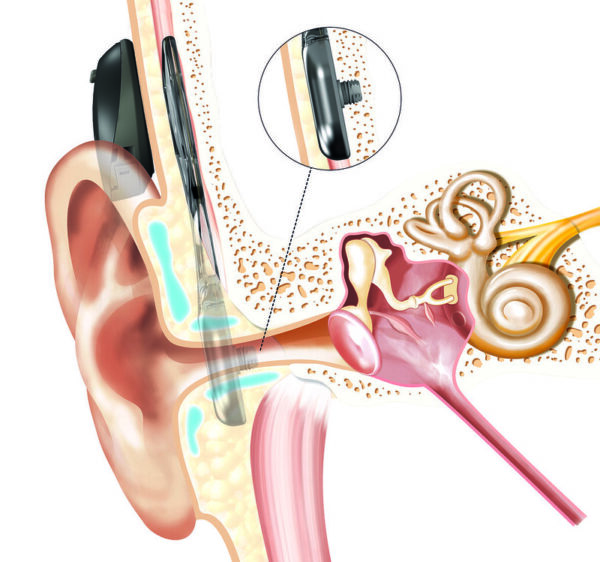Hearing is a critical sense that connects us to the world around us. However, when you or a loved one is struggling with hearing loss, it can have a profound impact. Fortunately, medical advancements like hearing implants are designed to help those with conductive or sensorineural hearing loss get back the sounds they have been missing. Read on to learn more about the difference between the two hearing loss types:
Understanding conductive versus sensorineural hearing loss:
- Conductive Hearing Loss: occurs when there is damage to the middle or outer ear that blocks sound transmission reaching the cochlea. Common causes include ear infections, cholesteatoma, draining ears, earwax blockages, or structural problems in these areas.
- Sensorineural Hearing Loss: occurs when the inner ear (cochlea) or auditory nerve are damaged or do not work properly. This type of hearing loss can be age-related, due to noise exposure, or can be caused by certain medical conditions.
 Benefits of hearing implants for conductive hearing loss
Benefits of hearing implants for conductive hearing loss
- Speech Recognition: Through an active osseointegrated steady-state implant, like the Cochlear™ Osia® System, recipients have the opportunity to hear better at high-frequencies, which are critical for speech understanding.
- Improved Sound Quality: Compared to hearing aids, an Osia System bypasses the damaged part of the ear, reducing the amount of amplification needed to hear clearer sounds.
- Non-Surgical Solutions: Through the Baha® Start System on a Baha Softband or Baha SoundArc™, users can trial bone conduction without the need for surgery.
 Benefits of cochlear implants for sensorineural hearing loss
Benefits of cochlear implants for sensorineural hearing loss
- Restored Hearing: For individuals with sensorineural hearing loss, cochlear implants offer the possibility of restored hearing and a renewed connection to their life. By directly stimulating the auditory nerve, these implants can provide access to sounds that were previously indistinguishable or entirely absent.
- Enhanced Quality of Life: Cochlear implants can have a profound impact on an individual’s quality of life. They allow recipients to engage more fully in social interactions, enjoy music and the sounds of nature, and participate in daily activities with confidence.
- Enhanced Speech Recognition: Cochlear implants can significantly improve speech understanding, making it easier to communicate with others, whether in one-on-one conversations or noisy environments.
Hearing implants can be a solution for both conductive and sensorineural hearing loss. These devices have the power to help those with hearing loss reconnect with the world around them and enjoy a richer, more fulfilling life.
For more information on hearing implants and hearing health, find a local hearing implant specialist here.